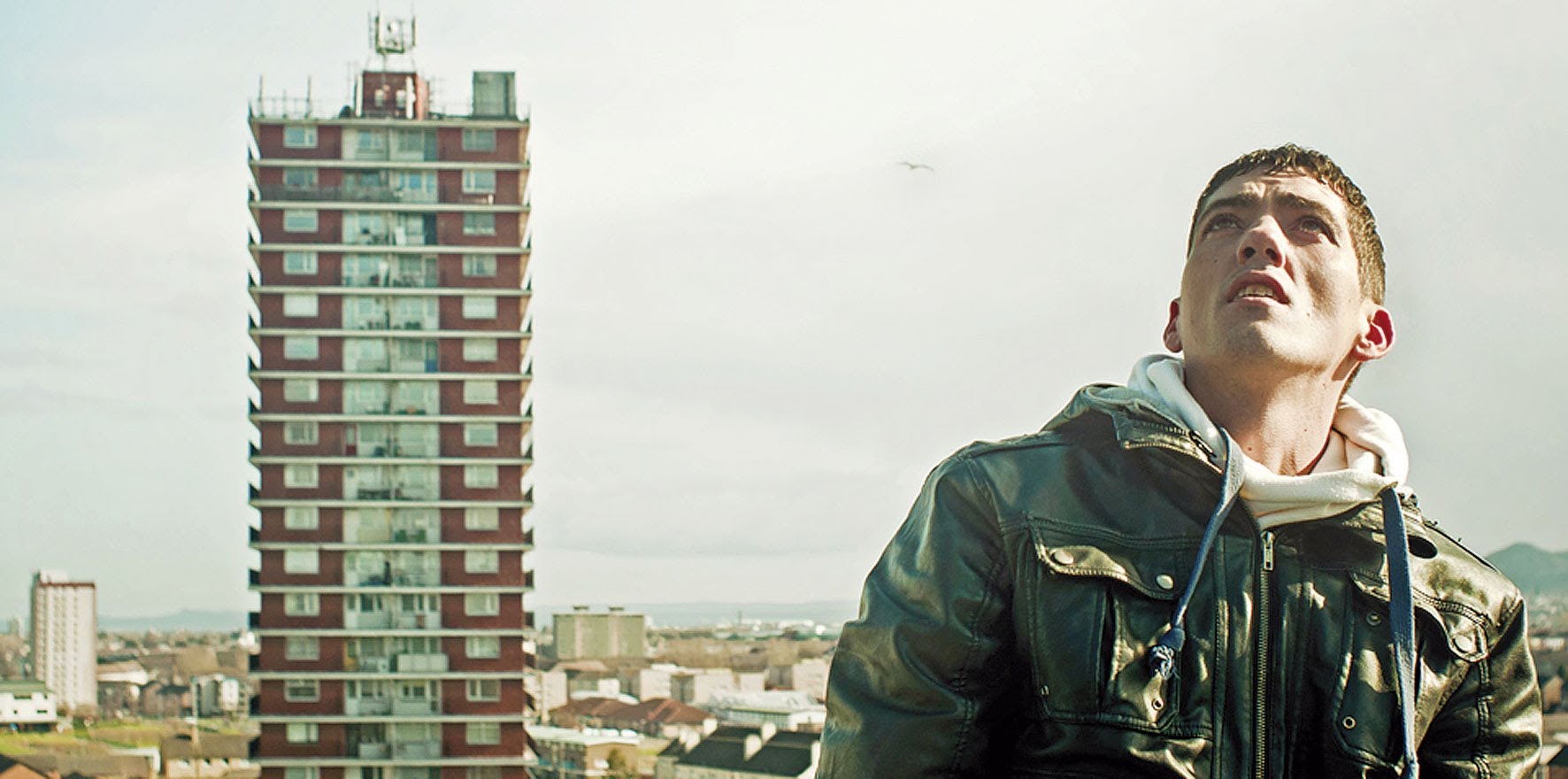
Everybody’s Child is a documentary by emerging Scottish filmmaker Garry Fraser.
A documentary in which recovering heroin addict and film director, Garry Fraser, takes us to the heart of the poor marginalised community he grew up in. Garry faces up to the damage done by his life of crime and drugs as he works to ensure his three children have something he never had; a loving, supportive family.
The film had its Scottish premiere at Glasgow Film Festival earlier this month.
Fraser opens the film with a musical flourish, a rap track about his personal journey and the harrowing conditions under which he grew up. His story kicks off with an introduction to Muirhouse, an estate in the North of Edinburgh which was once the HIV-AIDS capital of the UK and which, it seems – like many a problematic residential estate – has been largely ignored and underfunded by the Edinburgh City Council. Some statistics are thrown in for good measure here, demonstrating the dearth of the drug problem that led to HIV-AIDS epidemic in the area; however no real sense of Muirhouse’s current place in the city or country is achieved.
This is a theme that continues throughout the film: a place, a time, a bit of backstory, but no real insight into the wider context in which the filmmaker’s life sits. Fraser has chosen his set pieces well, building up a picture of life in an abusive household, moved from home to home, falling into a life of drugs and dealing, then finally making his way out with the love of a new family and a passion for filmmaking. However, it does not reach far beyond the life experience of one man and his triumph over his demons.
One of the tenets of criticism is not to criticise a film (text, artwork, etc) for something that it does not try to do. This rule makes a documentary like Everybody’s Child difficult to discuss – and the problem is in its presentation. Fraser is very much at the centre of the film, and of his world. The trouble is that film itself hints at being an issue-based documentary. In fact it is more of a personal work or memoir which addresses, but does not fully explore, a few key issues along the way. As a personal film, it is a Theroux-esque examination of personal struggles, and its content is at turns disturbing, compelling, and sad. As an issue-based doc, it falls short of poignancy. For example, Fraser condemns the methadone programme, but does not suggest an alternative practice. He later extolls his terrible experiences within the foster care system, but does not further examine its motivations or, again, any specific issues that ought to be raised for policy changes to take place. While one is compelled by Fraser’s personal story, there is not a great sense of how his personal successes (many of them works in progress) can become a hand up for others.
As the ended, I couldn’t help but think that its conclusions come far too soon. That the process cannot be fully appreciated when taking place, as the film does, primarily in the present tense. What else can a documentarian like Fraser bring to the table after his personal journey is spent? My hope is that, with this personal journey passed, he will be able to move on and turn his passion and ideas into issue-based activist films – ones that truly shed light on social ills and teach us how to improve the lives of people like that young Garry Fraser.
